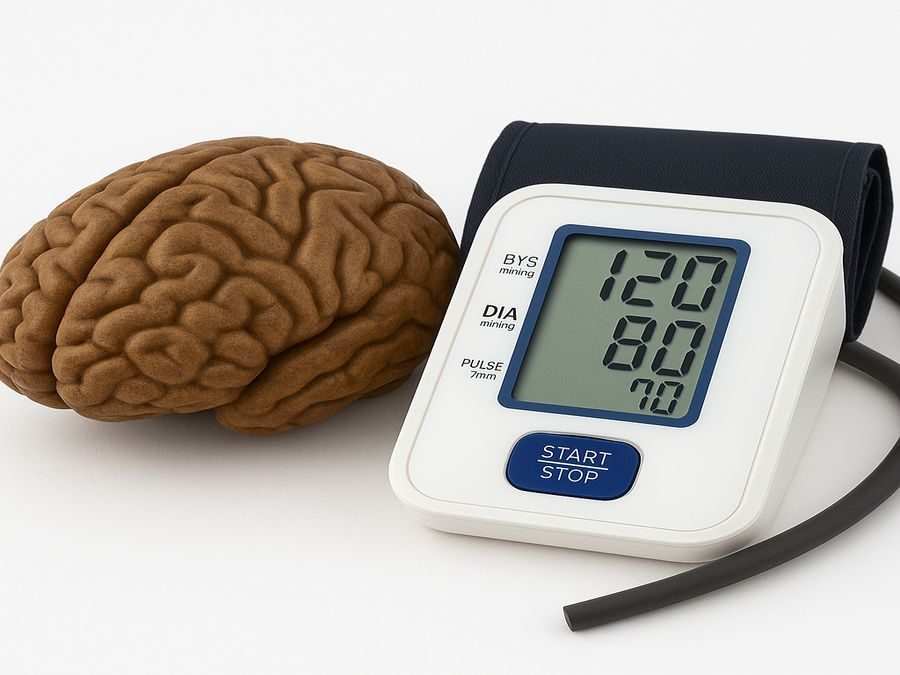


Dementia News April 2025.
Here’s this month’s dementia news, you might have missed:
Memory Lane TV offers an innovative way to support individuals living with dementia through its multi-sensory, plot-free programs.
Designed to foster connection and reduce anxiety, this service combines calming music, immersive visuals, and olfactory stimulation to help trigger positive emotions and memories.
Multi-Sensory Stimulation: Engages multiple senses, vital for improving mood and energy.
Person-Centered Approach: Tailored content to match personal interests and cultural backgrounds.
Proven Effectiveness: Users report enhanced well-being and decreased anxiety.
By integrating Memory Lane TV into dementia care plans, both family and professional caregivers can offer moments of calm and clarity, reinforcing bonds and enriching the lives of those they care for.
#DementiaCare #MemoryLaneTV #MultiSensory #AlzheimersSupport #Caregiving

High blood pressure, long associated with heart attacks and strokes, is now deemed influential in dementia risk.
The study, led by the First Hospital of China Medical University, revealed a 15% lower dementia incidence among those who underwent “intensive blood pressure control.”
Divided into two groups, participants were either given usual care or received targeted intervention to maintain optimal blood pressure.
Significantly, this study underscores the importance of managing hypertension not only for cardiac health but also for cognitive wellness.
The results offer compelling evidence supporting lifestyle modifications, such as exercise and dietary shifts, as prophylactic strategies against cognitive decline.
Enhancing awareness of hypertension’s broader impacts remains crucial for health care professionals and patients alike.
#BloodPressure #Dementia #HealthStudy #Hypertension #BrainHealth
Engaging with digital technology might just be the secret weapon against cognitive decline, according to recent research.
A comprehensive study reveals that older adults actively using digital devices have a remarkable 58% lower risk of cognitive impairment.
Contrary to the fear of “digital dementia,” it seems technology can serve as a brain booster.
By providing mental stimulation through online interactions, learning new digital skills, and maintaining social connections, digital engagement helps keep the mind sharp.
As we age, leveraging these tools becomes crucial in protecting cognitive health. Remember, balance is key—sit back, connect, and let your digital journey support your brain.
#DementiaPrevention #DigitalHealth #CognitiveHealth #BrainHealth #AgingWell

Walking and socializing are both acclaimed for enhancing brain health and reducing dementia risk, but have you considered combining these two activities?
Walking regularly is known to improve memory and cognitive processing, while engaging with loved ones strengthens problem-solving abilities and social connections.
Experts suggest that combining physical activity with social interaction could amplify these benefits due to improved cardiovascular health and stress reduction.
Although formal studies haven’t been conducted on this combined approach yet, the logic behind it is compelling.
Integrating walking with loved ones into your regular routine might just be the sharpest move for your brain.
#BrainHealth #Walking #DementiaPrevention #HealthyLiving #SocialHealth #CognitiveImprovement
A recent groundbreaking study from Stanford Medicine suggests that the shingles vaccine may lower dementia risk by 20%, marking a significant advancement in preventive health measures.
Conducted in Wales, this ‘natural experiment’ involved over 280,000 adults and mirrored the effects of a controlled trial, offsetting common biases in health behavior.
The research highlighted a more pronounced protective response in women, potentially due to immune response differences.
The findings open doors to alternative pathways in dementia prevention, particularly regarding the vaccine’s mechanism—whether it’s boosting immunity or reducing viral reactivation remains to be seen.
Continued research, including a proposed large-scale trial, is essential to unlock new preventive and treatment strategies, offering hope in the fight against dementia.
The past month reminds us that dementia care is not about finding a single answer, but about piecing together small truths.
Whether it’s the quiet power of a walk with someone you love, the surprising defense offered by a shingles vaccine, or the comfort of a familiar face on a screen, each step counts.
And maybe it’s not about holding onto everything—but about choosing which memories, which moments, we fight hardest to keep.
For additional information about dementia care, contact Applewood Our House.